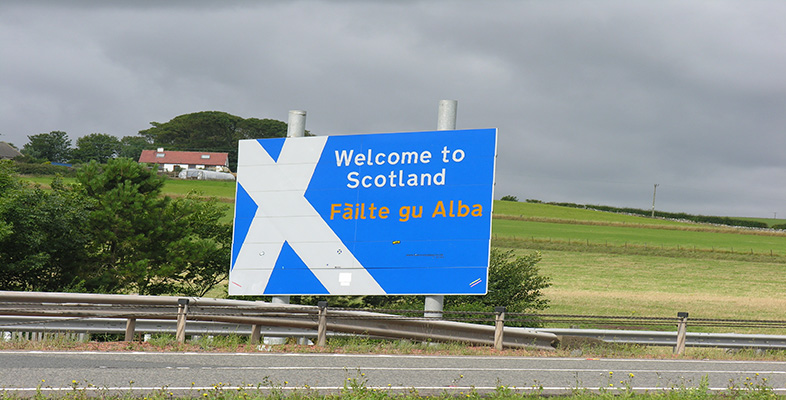Home » Course Layouts » Free Course Layout Udemy
Modern Scotland is a multi-lingual country. Gaelic, Scots and English, along with newer introductions from Europe and beyond, all influence the way Scotland's people now speak to each other and to the rest of the world. Created with the positive encouragement of Bòrd na Gàidhlig and with support from BBC Alba, this free course, Gaelic in modern Scotland, is available in both Gaelic and English. The course has been designed to provide a resource for people with a personal or professional interest in increasing their knowledge and understanding of the development and impact of Scottish Gaelic and its culture. It aims to surprise and challenge where necessary; to provide links and ideas for further research; and, for some, to kick-start a journey into learning a language which is integral to Scotland's national identity.
0
58
English
English [CC]
- Learn basic syntax that can apply to any language.
- Learn what is a programming language and the basic concepts for beginners.
- Understand what is Javascript in it's truest form.
- Know the basic syntax of Javascript.
- Know some hidden quirks in Javascript.
Description
Introduction
Modern Scotland is a multi-lingual country. Gaelic, Scots and English, along with newer introductions from Europe and beyond, all influence the way Scotland’s people now speak to each other and to the rest of the world. Created with the positive encouragement of Bòrd na Gàidhlig and with support from BBC Alba, this course – available in both Gaelic and English – has been designed to provide a resource for people with a personal or professional interest in increasing their knowledge and understanding of the development and impact of Scottish Gaelic and its culture. It aims to surprise and challenge where necessary; to provide links and ideas for further research; and, for some, to kick-start a journey into learning a language that is integral to Scotland’s national identity. The course is made up of seven sections which can be studied in sequence or individually.Contents
- Gaelic as a national language of Scotland
- Here you will learn how Gaelic sits alongside Scots and English as one of Scotland’s national languages. For example, by exploring the origin of place-names, you will learn about the influence of Gaelic right across Scotland.
- Celtic roots and international reach
- This section provides an introduction to the origins and Celtic roots of Gaelic and its close linguistic relations including Irish and Manx. You will also hear and see how emigration from Scotland took Gaelic to the Americas and how there are now learners of Gaelic across the world.
- Gaelic in the modern era
- Provides an up to date picture of who is speaking Gaelic now. It will help you understand the reasons for the decline in the number of Gaelic speakers in Scotland in the 20th century and the work currently being done by government, educational institutions and independent agencies to support and grow Gaelic language acquisition. There are links here to where to go if you decide you want to take your study of Gaelic further.
- Gaelic – the rationale
- Asks you to consider the value of bilingualism/multilingualism to individuals and society. It draws on the example of New Zealand to explore how other countries have sought to protect and celebrate the contribution of their indigenous minority languages.
- How the Gaelic language works
- Hear Gaelic spoken and practice for yourself. Audio resources will give you an insight into how Gaelic spelling, grammar and pronunciation work.
- Gaelic culture: a national asset
- Lots of pictures, clips and links to people, places and events will help you learn how Gaelic language and culture continue to make a significant contribution to Scotland’s literature, visual arts, music, dance, and sporting life.
- FAQs
- A list of frequently asked questions (FAQs) for people who need quick and easy access to the facts and figures concerning Gaelic
Course learning outcomes
After studying this course, you should be able to:- Understand how Gaelic sits alongside Scots and English as one of Scotland’s national languages
- Understand the origins and Celtic roots of Gaelic and its close linguistic relations, including Irish and Manx, and the Gaelic Diaspora
- Understand who is speaking Gaelic now, the decline in Gaelic speakers in the twentieth century and the work currently being done by government, educational institutions and independent agencies to support and grow Gaelic language acquisition the value of bilingualism/multilingualism to individuals and society, and the efforts made by countries like New Zealand to protect and celebrate the contribution of indigenous minority languages
- Understand how Gaelic is spoken
- Understand how Gaelic language and culture continue to make a significant contribution to Scotland’s literature, visual arts, music, dance and sporting life.
Course content
N.A
- 5 stars0
- 4 stars0
- 3 stars0
- 2 stars0
- 1 stars0
No Reviews found for this course.










